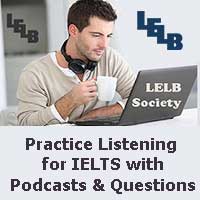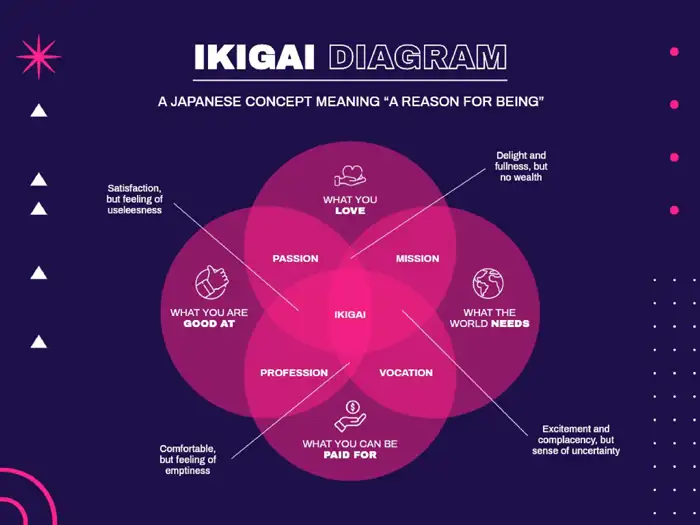Happiness IELTS Listening Reading Practice
Happiness IELTS Listening Reading Practice
Lecturer, author or publisher: Tal Ben-Shahar on Big Think
Happiness IELTS Reading Practice
What can people do each day to be happier?
The first thing to do to become happier paradoxically is to accept painful emotions, to accept them as part and parcel of being alive, you know, there are two kinds of people who don’t experience painful emotions; they are the psychopaths and the dead. It’s actually a good sign which means that they’re not psychopaths and they’re alive, and the paradox is that when we give ourselves the permission to be human; the permission to experience the full gamut of human emotion, we open ourselves up to positive emotions as well.
Are there specific things people can do?
The number one predictor of wellbeing of happiness is quality time we spend with our family friends, people we care about and who care about us, and in our modern world, unfortunately this quality time is eroding.
A very good predictor of well-being is what psychologist, Tim Kasser, called time affluence. Time affluence is the thing that we have time to sit down and chat with our friends while not well being on the phone at the same time or or text messaging at the same time being with that person. This is a better predictor.
Physical exercise contributes a great deal to happiness. In fact, there is research showing that regular exercise 3 times a week for 30 to 40 minutes of aerobic exercise could be jogging, walking or aerobics, etc. 3 times a week of 30 to 40 minutes of exercise is equivalent to some of our most powerful psychic drugs in dealing with depression or sadness or anxiety.
We’ve become a sedentary culture where do we park our car next to a workplace or take the train and that we don’t walk like our fore-parents used to. Thousands of years ago, our foreparents walked an average of 8 miles a day. How far do we walk today? Well, it depends where we park our car and there we pay a high price for it because we weren’t made to be sedentary, we were made to be physically active.
How can we cultivate gratitude?
There are treasures of happiness all around us and within us. The problem is that we only appreciate them when something terrible happens, usually when we become sick with appreciate our health; when we lose someone dear to us, we appreciate our life, and we don’t need to wait if we cultivate the habit of gratitude, we can significantly increase our levels of happiness. So, for example, research shows that people who keep a gratitude journal, who each night before going to sleep, write at least five things for which they are grateful, big things or little things, are happier, more optimistic, more successful, more likely to achieve their goals, physically healthier. It actually strengthens our immune system, and are more generous and benevolent towards others. This is an intervention that takes 3 minutes a day with the significant positive ramifications.
What happiness techniques are of practical importance in today’s world?
One of the most important things that we can do in our modern world is to simplify, to do less rather than more. The problem is that we try to cram more and more things into less and last time, and we pay a price; we pay a price in terms of the quality of the work and that we do we. Also, we pay a price in terms of the quality of relationships that we enjoy. So doing less such as, for example, switching our phone off for 3 hours when we get home, or not responding to every email as it arrives; having what I called email free zones and these little things simplifying our lives even slightly can make a significant difference to our productivity as well as happiness.




12. What is the bright side of experiencing painful emotions?
11. What does he mean by saying “email free zones”?
???? Thanks a lot for your concerted efforts to be flawless and comply with the rules.
10. How can we simplify our lives?
9. What habits exacerbate our sedentary lifestyle?
How does keeping gratitude journal works?
Please put a number before your questions.
Corrections:
How does keeping a gratitude journal work?
What is the first thing to do to become happier paradoxically?
7.
This question is a repetition of question No. 1.
What is the role of physical exercise in achieving happiness?
This is Question 6.
Please, list some happiness techniques in today’s world.
Corrections:
There should exist no comma between “please” as an interjection and an imperative.
When do usually we appreciate our treasures of happiness all around us?
In terms of Tim Kasser, what is the concept of time affluence?
Corrections:
In terms of Tim Kasser :arrow: according to Tim Kasser
Time affluence is the thing that we prefer to chat with our friends rather than texting message or phone call.
What kind of people don’t experience painful emotions?
The psychopaths and the dead.
What is the first thing to do to become happier?
Please put a number before your questions to be able to refer to them in the class more easily.
Ok. Sure
The first thing to do to become happier paradoxically is to accept painful emotions.
Precisely.